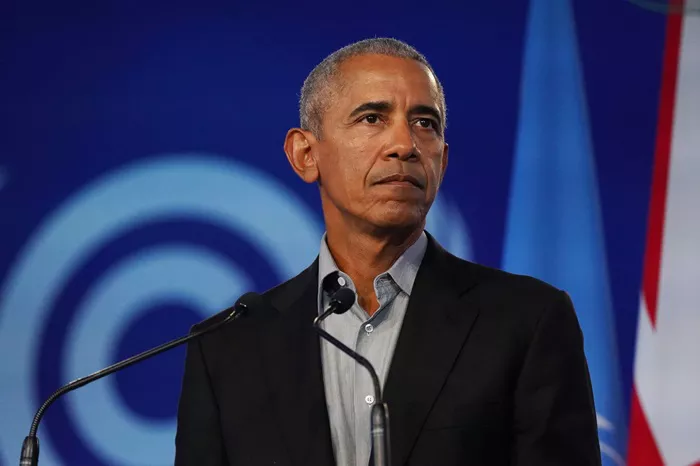August 4th is a significant date in American history, marked by a series of events that have influenced the nation’s cultural, political, and athletic landscapes. This article examines key occurrences on this date, highlighting their importance and impact on the United States. From presidential milestones and media launches to historic Olympic achievements and diplomatic encounters, each event provides insight into the evolving narrative of American history.
What Happened on August 4th in American History?
Birth of Barack Obama (1961)
On August 4, 1961, Barack Obama was born in Honolulu, Hawaii. As the 44th President of the United States, Obama made history as the first African-American to hold the office. His presidency, which spanned from 2009 to 2017, was marked by significant legislative achievements, including the Affordable Care Act, the Dodd-Frank Act, and a renewed focus on climate change and international diplomacy.
Obama’s birth in Hawaii and his subsequent rise to the presidency reflect a remarkable journey from local and state politics to the highest office in the land. His presidency represented a milestone in American civil rights and political progress, shaping the course of modern American history through his policies and leadership style.
First Edition of “The Saturday Evening Post” (1821)
August 4, 1821, saw the publication of the first edition of “The Saturday Evening Post,” an American magazine that would become an influential voice in American journalism and culture. Initially launched as a weekly publication, “The Saturday Evening Post” gained prominence for its coverage of news, literature, and social issues, becoming a staple in American households over the years.
The magazine’s long history and its role in shaping American culture and politics cannot be overstated. It provided a platform for notable writers and journalists and became known for its distinctive cover art and thought-provoking articles. The first edition marked the beginning of a publication that would leave a lasting legacy in American media.
Allied Expeditionary Force Sets Off for Peking (1900)
On August 4, 1900, an allied expeditionary force, including American troops, set off from Tientsin (now Tianjin) for Peking (now Beijing), China. This military operation was part of the international response to the Boxer Rebellion, a violent uprising against foreign influence in China. The allied forces aimed to protect foreign nationals and Chinese Christians while quelling the rebellion.
The involvement of American troops in this multinational force highlighted the United States’ growing role on the global stage. The expedition’s success in capturing Peking and suppressing the rebellion demonstrated America’s increasing influence in international affairs and its commitment to global stability.
Jesse Owens Wins Second Gold Medal (1936)
August 4, 1936, was a historic day for American athlete Jesse Owens at the Berlin Olympics. Owens won his second gold medal in the long jump, defeating German athlete Luz Long and setting an Olympic record. This achievement was particularly significant given the political context of the Games, which were held in Nazi Germany.
Owens’ performance at the Berlin Olympics was not only a triumph of athletic prowess but also a profound statement against the racial ideologies of the time. His victories challenged the notions of Aryan superiority promoted by the Nazi regime and highlighted the power of sports to transcend political and racial boundaries.
Bill Clinton Meets Kim Jong-Il (2009)
On August 4, 2009, former President Bill Clinton met with North Korean leader Kim Jong-il. This meeting was a pivotal moment in diplomatic relations between the United States and North Korea. During the visit, Clinton successfully negotiated the release of American journalists Euna Lee and Laura Ling, who had been detained in North Korea for illegally entering the country.
The meeting underscored the complex nature of U.S.-North Korea relations and highlighted the role of diplomacy in resolving international conflicts. Clinton’s intervention was a significant moment in American foreign policy, demonstrating the impact of high-level negotiations in securing the release of detained citizens and addressing geopolitical tensions.
Sheldon Adelson’s Birth (1933)
Sheldon Adelson was born on August 4, 1933, in Boston, Massachusetts. Adelson became a prominent American business magnate, best known as the CEO of Las Vegas Sands Corporation, a major casino and resort company. His business ventures, including the development of integrated resorts in Las Vegas, Macao, and Singapore, positioned him as a key player in the global casino industry.
Adelson’s influence extended beyond business; he was also a major political donor, contributing significantly to the Republican Party and various causes related to Israel. His financial contributions and political activities had a considerable impact on American politics and international relations, reflecting the broader intersection of business and political influence in contemporary America.
Conclusion
August 4th in American history reflects a diverse array of significant events, each contributing to the nation’s cultural, political, and athletic legacy. From the birth of a transformative president and the launch of a pivotal magazine to historic Olympic achievements and diplomatic breakthroughs, this date offers a glimpse into the dynamic and evolving story of the United States. These moments highlight the multifaceted nature of American history and the ongoing impact of its key figures and events.

